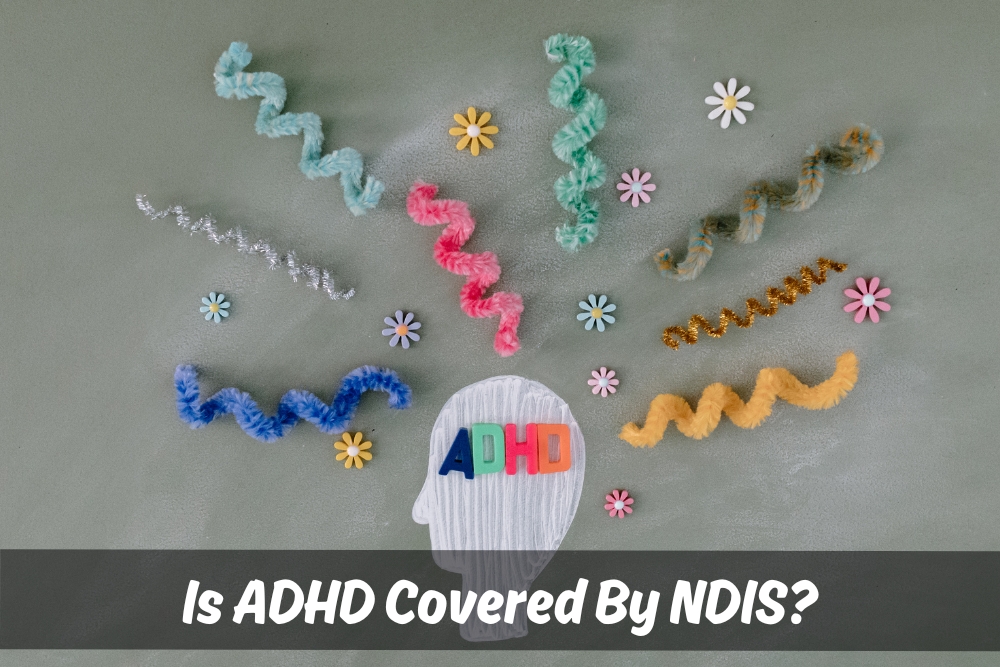It is always a wonder for everybody if Attention Deficit Hyperactivity Disorder, mostly known as ADHD can be covered by NDIS. Unlike some disabilities, this doesn’t have automatic funding. However, that doesn’t mean you are out of luck! So, “Is ADHD covered by NDIS?” The short answer? It depends. There are ways for you to be eligible for support. Remember, NDIS focuses on helping folks with disabilities that seriously impact their daily lives.
Now, join in on the discussion and learn how to obtain this support.
What is ADHD and how does it affect daily life?
This condition makes things a constant struggle. It is characterised by inattention, hyperactivity, and impulsivity. This hinders activities like schoolwork, employment, maintaining relationships, and managing household tasks. And, it impacts your daily life. These conditions manifest in different ways depending on the individual. Common challenges include:
- Difficulty focusing and staying on task
- Disorganisation and forgetfulness
- Excessive fidgeting and restlessness
- Difficulty controlling emotions
- Impulsive decision-making
Can you get ADHS covered by NDIS?
Substantially, it isn’t automatically covered. The scheme is designed to support Australians with permanent and significant disabilities that impact their daily lives.
However, don’t lose hope! If their condition meets the specific criteria set out by the NDIS, individuals with this disorder can be eligible for funding.
Figuring out if NDIS covers ADHD
With this, you sometimes need to know if you fit within the basis. Benefits of NDIS behavioural therapy programs can significantly improve a person’s ability to manage daily tasks and navigate social situations, ultimately strengthening their case for NDIS eligibility. For you to be aware of the support qualifications, here is what you need to know about its guidelines:
- Age: Ages between 7 and 65 years old.
- Residency: Be an Australian citizen or permanent resident.
- Disability: Have a permanent disability that is likely to be lifelong.
- Functional impact: Have a disability that significantly reduces a person’s ability to participate in everyday activities.
In the context of ADHD covered by NDIS, the key element is demonstrating the functional impact of the condition. Here’s a breakdown of how it might affect each element:
- Is the disability permanent or likely permanent? Fear not, although it is a lifelong condition, its symptoms may change over time. These criteria are usually met for individuals with this kind of disability.
- Does it significantly reduce the ability to do everyday activities? This is where a strong case needs to be made. You’ll need to show how this significantly impacts your capacity to manage daily tasks like self-care (e.g., hygiene, dressing), cooking and eating, taking medication, managing finances, attending appointments, and maintaining a safe environment.
- How does it impact the social and economic life? This affects the two, difficulty maintaining healthy relationships due to impulsivity or emotional dysregulation and challenges with employment due to problems with focus, organisation, or time management.
- Do you need ongoing support for this? It typically requires ongoing support strategies, such as medication, therapy, or skills training. Demonstrating the need for ongoing support strengthens your case for eligibility.
Generally, its core principle building independence with daily living skills as it empowers individuals to manage everyday tasks and actively participate in their communities.
What evidence do you need during the application?
If you believe you meet all the criteria listed by the organisation, then, the next step is to gather evidence to support your appeal. This might include:
- A formal diagnosis from a qualified healthcare professional like a psychiatrist or psychologist.
- A detailed report outlining the severity and impact on daily life.
- Letters from supporting healthcare providers (e.g., therapists, doctors) detailing your treatment and specific challenges.
- Evidence of how this impacts your social and economic life (e.g., employment history, relationship difficulties).
How can a psychosocial disability report help?
A qualified mental health professional completes this kind of report. This assessment will assess the functional impact of your condition and provide a comprehensive picture of your needs, making it a valuable asset in your request.
In addition to the report, consider seeking comprehensive therapeutic support for ADHD in Australia from qualified healthcare professionals who can provide ongoing treatment plans and support strategies that can further strengthen your application and improve your overall well-being.

Alternatives and support options for ADHD management
Even if you’re not eligible for this support, there is still a range of resources available to help manage this type of disability. These include:
- Medicare rebates for consultations with psychologists and psychiatrists.
- Private health insurance coverage for treatment.
- Support groups and community organisations that offer information, resources, and peer aid.
- Government programs like the Better Access initiative, which provides subsidised access to mental health professionals.
Navigating support options: Is ADHD covered by NDIS?
With all this information, you will realise that the application process for this disability can be complex. But, again, don’t lose hope! You can contact the National Disability Insurance Agency (NDIA). This government agency is responsible for administering the NDIS. They offer information and support throughout the application process. There are still many resources that can help you navigate the system and can assist you with the request.
In addition, reaching out to ADHD support organisations, is also highly advisable. Several Australian groups provide support and information with this matter. These agencies can offer valuable guidance on managing your disability and navigating the application process. But, hold on tiger! While it isn’t a guarantee for funding, understanding ADHD’s impact before applying for NDIS eligibility is crucial. This will help you determine if your experience meets the scheme’s criteria and strengthen your application if you do decide to proceed.
Take charge of your ADHD journey with Auburn Health!
Whether or not you qualify for NDIS support, managing ADHD effectively is crucial. We’ve got everything from figuring things out to meds, therapy, and skill-building to help you be your best self. You got this, and we’re here to cheer you on!
Our awesome healthcare crew at Auburn Health is here to rock your everyday life with you! We’ll check you in thoroughly, create a personalized plan, and stick by your side for the long haul. Learn more about ADHD with Auburn Health and schedule an appointment to take charge of your ADHD journey.


